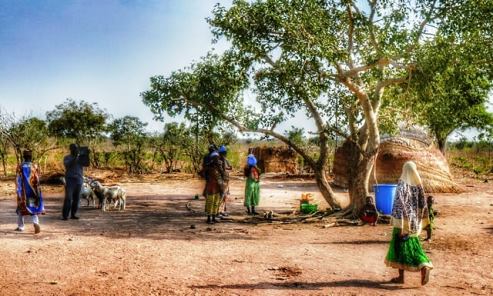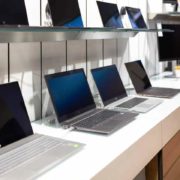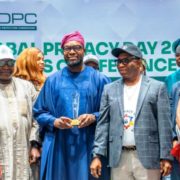By Osasómé C.O
NCC Raises Alarm Over Deepening Digital Divide in Rural Nigeria
The Nigerian Communications Commission (NCC) has revealed that only 23 percent of rural communities in Nigeria currently have access to the internet, compared to 57 percent in urban areas — a gap that the regulator warns is worsening the country’s digital divide and economic inequality.
RELATED: Household internet access in urban areas twice as high as in rural areas
Speaking at the Rural Connectivity Summit in Lagos, organised by the Rural Connectivity Initiative, NCC’s Executive Vice Chairman, Dr. Aminu Maida, said millions of rural Nigerians remain digitally excluded from modern education, healthcare, and economic opportunities.
“A community without digital connectivity is functionally invisible — cut off from modern education, healthcare, markets, and opportunity,” Maida said. “This ‘digital invisibility’ is unacceptable, and we must act decisively to end it.”
Urban-Rural Internet Gap Threatens Inclusive Growth
According to NCC data, urban internet usage stands at 57 percent, while rural penetration remains at 23 percent, marking one of the widest digital gaps in Africa, as noted by the International Telecommunication Union (ITU).
The disparity, Maida noted, undermines Nigeria’s push for inclusive digital transformation, adding that the lack of rural connectivity has become not just a development issue but a national security concern.
Root Causes of the Rural Connectivity Crisis
The NCC identified several challenges responsible for the slow pace of rural internet expansion:
- Unequal infrastructure investment: Telecom operators prioritize urban rollouts of 4G and 5G networks.
- High costs: Data and smart devices remain unaffordable for many rural residents.
- Low digital literacy: Many lack the skills to use the internet effectively.
- Power deficit: Unreliable electricity hampers telecom infrastructure performance.
- High deployment costs: Difficult terrain and low population density drive up network rollout costs.
Consequences of Nigeria’s Rural Digital Exclusion
The continued exclusion of millions of rural Nigerians has far-reaching consequences:
- Education and healthcare inequality — limits access to e-learning and telemedicine.
- Economic exclusion — blocks access to digital banking, e-commerce, and remote work.
- Widening social divide — deepens inequality between rural and urban populations.
- Security risk — unconnected communities are harder to monitor and develop.
NCC’s Rural Connectivity Initiatives
Dr. Maida reaffirmed NCC’s commitment to bridging the digital divide through the Universal Service Provision Fund (USPF). Key projects include:
- Rural Broadband Initiative (RUBI) – expanding broadband to underserved areas.
- Accelerated Mobile Phone Expansion (AMPE) – improving rural network coverage.
- E-health and education projects – connecting schools and remote hospitals.
- Over 2,500 digital education projects and 100,000 computers delivered to schools nationwide.
“Connectivity is not just about speed but about economic growth and national development,” Maida stated. “A 10 percent increase in broadband penetration can boost GDP by up to 1.38 percent.”
State Collaboration and Infrastructure Protection
Maida commended 11 states for adopting zero Right-of-Way (RoW) charges, with 17 others implementing the ₦145 per metre benchmark, urging others to follow suit to lower network rollout costs.
He also raised concerns over vandalism and fibre cuts, revealing that between January and August 2025, operators recorded 19,000 fibre cuts and 3,000 cases of equipment theft, severely impacting service quality.
“These acts erode investments and affect millions of Nigerians. Protecting telecom infrastructure is a shared national responsibility,” Maida emphasized.
Looking Ahead: Building an Inclusive Digital Future
The NCC boss called for collective action among government, operators, and communities to expand broadband access, safeguard infrastructure, and unlock rural Nigeria’s economic potential.
“No Nigerian should be left behind. Universal, meaningful connectivity is our shared goal,” he concluded.






























